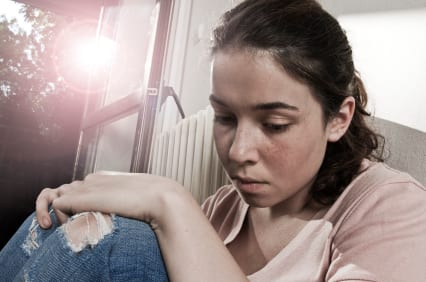 Part of parenting – a weighty and unglamorous responsibility – is keeping your kids safe.
Part of parenting – a weighty and unglamorous responsibility – is keeping your kids safe.
The recent elementary school shootings in Newtown, Connecticut are a terrible reminder of how unsafe our kids are at times. However, random attacks by strangers, although terrifying and tragic, are far more rare than a common danger lurking in our children’s lives as they grow up, become teenagers, and start to dabble in the world of love.
Relationship abuse is not usually something we parents think of as we imagine our children’s bright shiny futures. Unfortunately, physical battering, psychological control, and stalking are all too real, and common, dangers.
Girls ages 16-24 are three times as likely to be victims of domestic violence as women of other ages. In the United States, over 500 girls in this age category are killed every year by boyfriends and husbands (and ex-boyfriends and ex-husbands). Over 15 million children are victims of family violence every year in the U.S.
Another little-known fact is how lethal it can be to leave an abusive relationship. Over 70% of relationship violence murders happen AFTER the victim has ended the relationship. After she, or he, has gotten out.
If you are a 16-year-old, it’s pretty hard to spot the patterns of emotional coercion. The warning signs of dating violence include obsessive texting, subtle and overt possessiveness, attempting to isolate a victim from her family and friends, making threats of violence, and increasing levels of criticism and control over makeup, clothing, choices of friends and musical tastes.
I know all this data all too well because when I was 22, I met, fell in love with, and married an abusive man. I thought he was my soulmate. I was convinced it was my mission on earth to love and heal this damaged, charming man who seemed to love me as passionately as I loved him.
I learned the hard way how wrong I was. And my family and friends, stranded on the sidelines, did too. Once I’d become ensnared in this carefully-laid psychological and physical trap disguised as love, there was little they could do to reach me.
To raise awareness about the risks of relationship violence, I recently worked with the nonprofit TED organization to create a short YouTube video for parents, friends and family of domestic violence victims. By watching this and sharing it with friends and family members, you will acquire simple, powerful tools to help end relationship violence. Thank you.

“From the Ivy League to a Gun at My Head” or www.lesliemorgansteiner.com





